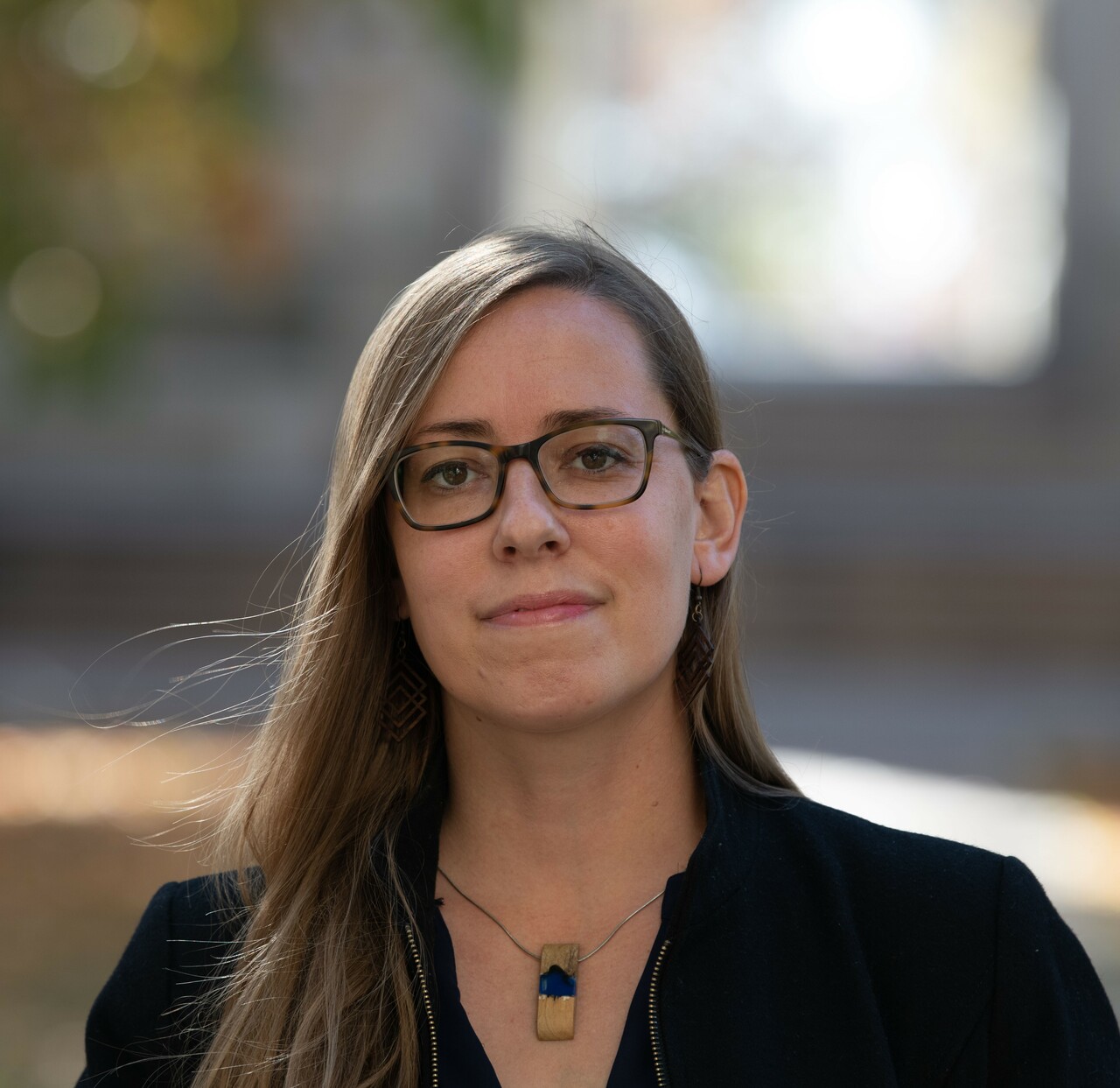
Professor Désirée Weber contributes chapter about community in a democratic society in new book

Désirée Weber, professor of political science at The College of Wooster, contributed a chapter to the edited volume Wittgenstein and Democratic Politics: Language, Dialogue and Political Forms of Life. The book, published by Routledge in October, demonstrates how philosopher Ludwig Wittgenstein’s ideas can illuminate the understanding of politics and offer new ways to think about democratic theory and practice.
Weber’s chapter, “Community and Temporality: A Wittgensteinian Approach to Political Judgment,” looked at how language and meaning for Wittgenstein “rest on us having shared and sometimes conflicting ideas about what something like democracy means,” she said. Wittgenstein wrote about language, how it functions, and how to make sense of how language works. In the book chapter, Weber focused on how being in various communities, including political communities, shapes how individuals use political language and political concepts, especially in conversations about democracy.
In everyday use of language about politics or what’s going on, individuals make judgments about meanings or concepts that make sense to them or which ones they reject. “We might not think of those judgments as deeply reflective, but I argue that those decisions about the language we use or avoid are also a form of political judgment,” she said. “When we make choices about how to articulate what’s going on, we also set the conditions for the next conversation.” This is important in a society where decisions are made democratically, and most people should have a say in those decisions.
The book is a result of a several-year, multinational research group that included scholars, activists, and individuals who had been involved in political efforts or even been in political office. They shared research and background in Wittgenstein and a deep concern and interest in the political world. “We wanted to use our scholarly interests and insights to speak, to think about, to make sense of, and maybe even to help affect in a tiny way, the politics that we care about,” Weber said.
Weber was grateful to the community of scholars that came together for the project. They were deeply knowledgeable about the philosopher and his philosophical ideals, and deeply committed to politics. “The timeliness of the project and the relevance to what’s going on was reassuring and rejuvenating,” Weber said. She intends to include some of the concepts next semester in a Language, Politics and Rhetoric course she will teach.
Posted in Faculty, News on December 2, 2024.
Related Posts
Related Areas of Study
Political Science
The study of power, with concentrations in U.S. politics, international relations, political theory and comparative politics.
Major MinorPhilosophy
Delve into ethical and moral debates while critically analyzing the issues facing humanity
Major Minor

